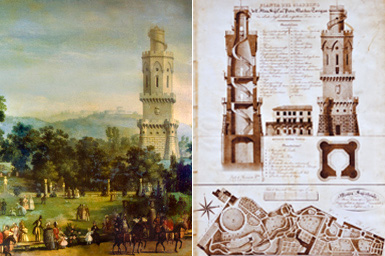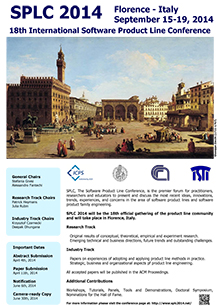- Wednesday September 17th
Luciano Baresi "Self-adaptive systems, services, and product lines"
Jonn Lantz " Using models to scale agile mechatronics development in cars; case studies at Volvo Car Group" - Thursday September 18th
Mark Harman "Search based software engineering for software product line engineering: a survey and directions for future work" - Friday September 19th
Arnaud Hubaux "What research in software product line engineering is not solving in configuration"
Luciano Baresi
Dipartimento di Elettronica, Informazione e Bioingegneria
Politecnico di Milano (Italy)
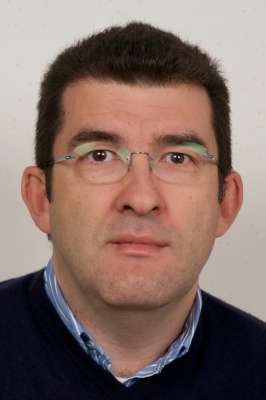 Luciano Baresi is an associate professor at Politecnico di Milano, where he is a member of DEEP-SE (Dependable Evolvable Pervasive Software Engineering Group). He was also visiting professor at University of Oregon (USA) and visiting researcher at University of Paderborn (Germany).
Luciano Baresi is an associate professor at Politecnico di Milano, where he is a member of DEEP-SE (Dependable Evolvable Pervasive Software Engineering Group). He was also visiting professor at University of Oregon (USA) and visiting researcher at University of Paderborn (Germany).Luciano has been program chairs of several conferences: FASE’06, ICWE’07, ICSOC’09, SEAMS’12 and ESEC/FSE’13. He will be the general chair of WICSA'16 (Working IEEE/IFIP Conference on Software Architecture).
Luciano is currently a member of the editorial board of the Transactions on Autonomous and Adaptive Systems (ACM), of the Transactions on Services Computing (IEEE), of the Transactions on Software Engineering (IEEE), and of Service Oriented Computing and Applications (Springer). He is also the chair of the IFIP working group (2.14/6.12/8.10) on Services-oriented Computing.
Luciano’s research interests have always been in the area of software engineering. Currently, he is interested in designing, implementing, and analyzing distributed systems, service-based applications, and autonomic and self-adaptive software systems.
Wednesday September 17th 9.00-10.00 in Sala Pontevecchio
Chair: Julia Rubin
Keynote: Self-adaptive systems, services, and product linesChair: Julia Rubin
Self-adaptive systems, services, and product lines can be seen as different facets of the same problem. Self-adaptation provides the requirements, product lines a conceptual means to frame them, and services a possible technology to implement the resulting systems. The first part of the talk will then present a critical overview of the many solutions proposed for adding self-adaptive capabilities to software systems, and it will continue by introducing service-based solutions and software product lines to discuss what self-adaptive systems have already borrowed or could borrow from them.
The second part of the talk will introduce the solutions we have developed so far to contribute to the aforementioned scenario. It will touch FLAGS, for eliciting the requirements of these systems, DYNAMO, an example of flexible and dynamic service compositions, and DyBPEL, a means to enact dynamic service-centric product lines. Some conclusions and some final remarks for a possible research agenda will conclude the presentation.
Mark Harman
Department of Computer Science,
University College London (UK)
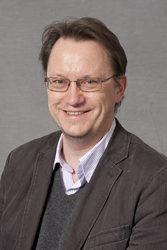 Mark Harman is professor of Software Engineering in the Department of Computer Science at University College London where he is head of Software Systems Engineering and director of the CREST centre. He is widely known for work on source code analysis and testing and was instrumental in the founding of the field of Search Based Software Engineering (SBSE), the topic of this keynote. Since its inception in 2001, SBSE has rapidly grown to include over 1000 authors, from 320 institutions spread over more than 40 countries. A recent tutorial paper on SBSE can be found here:http://www.cs.ucl.ac.uk/staff/mharman/laser.pdf
Mark Harman is professor of Software Engineering in the Department of Computer Science at University College London where he is head of Software Systems Engineering and director of the CREST centre. He is widely known for work on source code analysis and testing and was instrumental in the founding of the field of Search Based Software Engineering (SBSE), the topic of this keynote. Since its inception in 2001, SBSE has rapidly grown to include over 1000 authors, from 320 institutions spread over more than 40 countries. A recent tutorial paper on SBSE can be found here:http://www.cs.ucl.ac.uk/staff/mharman/laser.pdf
Thursday September 18th 9.00-10.00 in Sala Pontevecchio
Chair: Patrick Heymans
Keynote: Search based software engineering for software product line engineering: a survey and directions for future work
(Mark Harman,Yue Jia, Jens Krinke, William B. Langdon, Justyna Petke and Yuanyuan Zhang)
This keynote will provide an introduction to Search based Software Engineering (SBSE); concepts, results, tools and directions for future work. The talk will provide an overview of recent results in the application of SBSE to software product line engineering. The paper which accompanies this keynote provides a more detailed survey this body of work. Chair: Patrick Heymans
The talk will move on focus on the recent upsurge in interest in genetic programming as a means of optimising the core engineering material with which we work: the program source code at the heart of our software.
The talk will conclude by setting out an agenda for future work on the application of SBSE to software product line engineering, in particular explaining how genetic improvement might be used to grow and manage software product lines. This is joint work with Yue Jia, Jens Krinke, William B. Langdon and Justyna Petke.
Arnaud Hubaux
ASML (Netherlands)
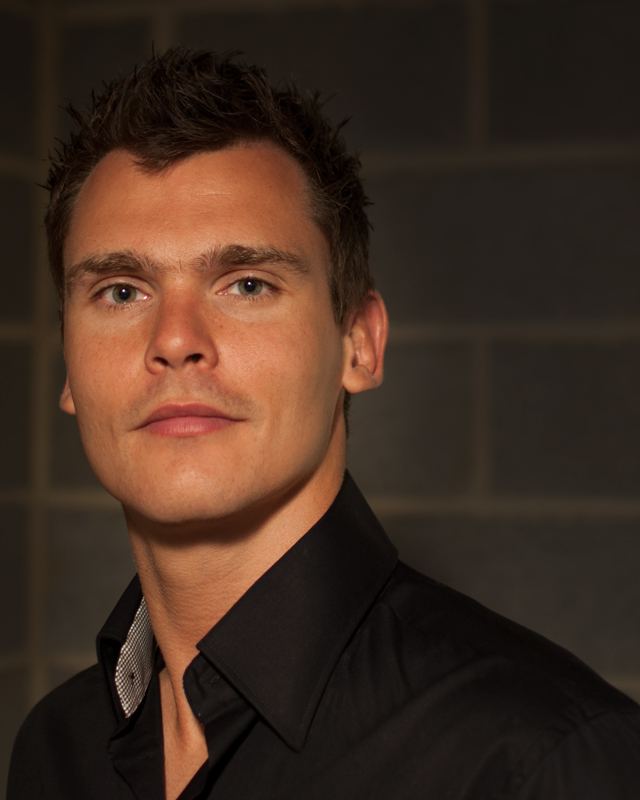 Arnaud Hubaux is an enterprise architect expert in configuration and product variant management. Before joining ASML in 2013, he completed a PhD and postdoc in computer science at the University of Namur, Belgium. His research interests lie in the formal integration of software and hardware variability, and collaborative configuration. Between October 2010 and September 2011, he was a visiting researcher at the GSD Lab of the University of Waterloo, Canada, where he worked on conflict detection and resolution in software configuration. He was an active member of the inter-university MoVES (Modelling, Verification and Evolution of Software) network from which he received the most promising young researcher award in 2010. He has published articles in premier journals and conferences including the ACM Computing Surveys, Transactions on Software Engineering, and the International Conference on Software Engineering.
Arnaud Hubaux is an enterprise architect expert in configuration and product variant management. Before joining ASML in 2013, he completed a PhD and postdoc in computer science at the University of Namur, Belgium. His research interests lie in the formal integration of software and hardware variability, and collaborative configuration. Between October 2010 and September 2011, he was a visiting researcher at the GSD Lab of the University of Waterloo, Canada, where he worked on conflict detection and resolution in software configuration. He was an active member of the inter-university MoVES (Modelling, Verification and Evolution of Software) network from which he received the most promising young researcher award in 2010. He has published articles in premier journals and conferences including the ACM Computing Surveys, Transactions on Software Engineering, and the International Conference on Software Engineering.
Friday September 19th 9.00-10.00 in Sala Pontevecchio
Chair: Deepak Dhungana
Keynote: What research in software product line engineering is not solving in configurationChair: Deepak Dhungana
The second part of the keynote takes some altitude to stare at two emergent configuration challenges. First, the once distinct line between hardware and software, developing and manufacturing, building and installing is blurring. As products embed more and more software, the need to integrate application and product lifecycle management (ALM and PLM) tools is pressing. I will illustrate how the weak integration of ALM and PLM tools can affect lead time and product quality. Secondly, the ubiquity of software in products, coupled with shrinking globalization product lifecycles, reshapes communication between parts, products, companies, and end-users. This change blurs yet another solid line: The line between product engineering and operations. Here again, I will point out why ALM, PLM, and enterprise resource planning (ERP) tool vendors struggle to keep up with the pace of the demand from companies. Those two challenges fall under the umbrella of popular themes known as cyber-physical systems, the Internet of things, or the fourth industrial revolution, a.k.a. Industry 4.0.
The challenges posed by Industry 4.0 are likely to become strong drivers for software product line engineering. Indeed, smart sensors and adaptive software are the foundation stones for the new industrial revolution. Not only will those technologies be embedded in innumerable devices, but they will also have to guarantee unmatched reliability and security levels in versatile environments. The keynote will conclude with an open window on those perspectives.
Jonn Lantz
Volvo Car Group
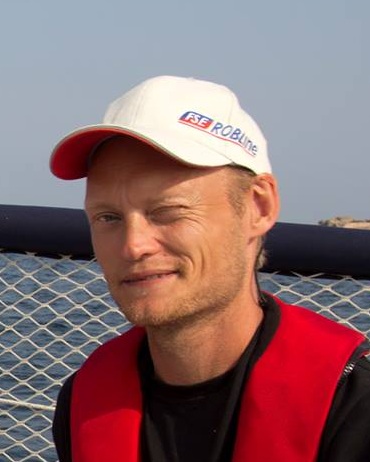 Technical Specialist at Volvo Car Group specialized in Continuous Deployment, currently engaged in hybrid development and research. Having a background as physicist and teacher, Jonn has been deeply involved in the introduction of AUTOSAR software development at VCG as well as achievements in physical modelling. The research projects includes electric drive software and understanding assumptions in distributed software system development.
Technical Specialist at Volvo Car Group specialized in Continuous Deployment, currently engaged in hybrid development and research. Having a background as physicist and teacher, Jonn has been deeply involved in the introduction of AUTOSAR software development at VCG as well as achievements in physical modelling. The research projects includes electric drive software and understanding assumptions in distributed software system development.
Wednesday September 17th 13.45-14.45 in Sala Pontevecchio
Chair: Krzysztof Czarnecki
Keynote: Using models to scale agile mechatronics development in cars; case studies at Volvo Car GroupChair: Krzysztof Czarnecki
R&D at Volvo Car Group (VCG) has made great investments during the last decades in Model Based Development and Physical Modelling of the complex mechatronic systems associated with vehicles.
Driven by the dramatic increase of electronics and software in competitive cars, enhanced also by the novel development of hybrid vehicles, the recent focus has been to scale agile mechatronic software development in the multi ECU system, utilizing the tools of and experience in modelling.
VCG is currently developing ECU software using executable Simulink models with automated code generation and is currently in the phase of developing the essential automation frameworks for fast "continuous" integration and testing. Early integration and fast development loops are important but challenging in vehicle systems, while multiple suppliers as well as in-house developers are involved and where advanced control software development is conducted by domain experts, not software specialists. In parallel, much effort is spent in development of Plant models (usually physical models of dependent systems or mechanics). Plant models can be used both for development, which is usually equivalent with Understanding the system, and for various software regression tests.
Case studies made at VCG shows that modelling should actually be considered as an enabler for agile development. The current challenges include efficient test environments for developers, fast and automated feedback from system or sub system integration (real and virtual), scaling of plant model architectures and finally the challenge of controlling the potentially diverging amount of variants, in mechatronics, software and models.

![[evalphp]echo get_stylesheet_directory_uri();[/evalphp]/splcimages/confpics/img_1046-3264.jpg](images/img_1046-3264.jpg)
